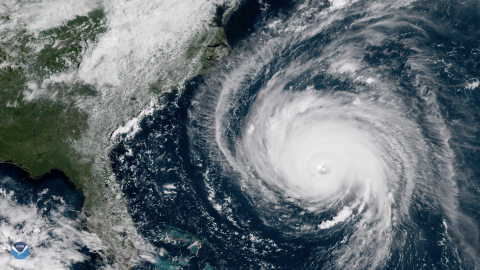In observance of Independence Day, we are posting this letter to the editor by Center Co-Director, David Kyler. It was originally published in the Savannah Morning News in July 2020.

In the barrage of recent events, Independence Day invites self-reflection on the history and values associated with this hallowed holiday.
Diverse expressions of dissent related to COVID-19, racial issues, and national interest have exposed contentious rifts in America’s identity. Ironically, these conflicting viewpoints are commonly derived from aspirations embedded in the nation’s origins – foremost, individual liberty and the pursuit of happiness.
Americans are renowned for independent thinking, articulated in the landmark 1841 essay by Ralph Waldo Emerson, "Self-Reliance.” Resisting conformity and following one’s instincts as perceived in an “every-man-for-himself” world have been espoused for much of our history.
Related residual views still predominate among various divisive groups, serving as a vaguely understood basis of self-respect. Yet, intertwined social, economic, and technological changes that have occurred since these tenets of American identity were formulated require that we adapt them to new circumstances.
Personal liberty in the 21st century depends on a respectful society that requires tempering the excesses of a “frontier ethic” whose practitioners are often skeptical of science and hostile toward others – including racial minorities and migrants.
Abandoning fantasized freedoms is essential if we hope to restrain COVID and other diseases, restore our ravaged global environment, and establish lasting social justice.
Achieving an equitable, interdependent society with mutually beneficial opportunities requires that past prejudices and antagonisms be cast aside. A revitalized sense of the common good must inspire our vision.
To honor America’s ideals, we must struggle for independence from the oppressive dogmatism that degrades our country’s worthy prospects.



